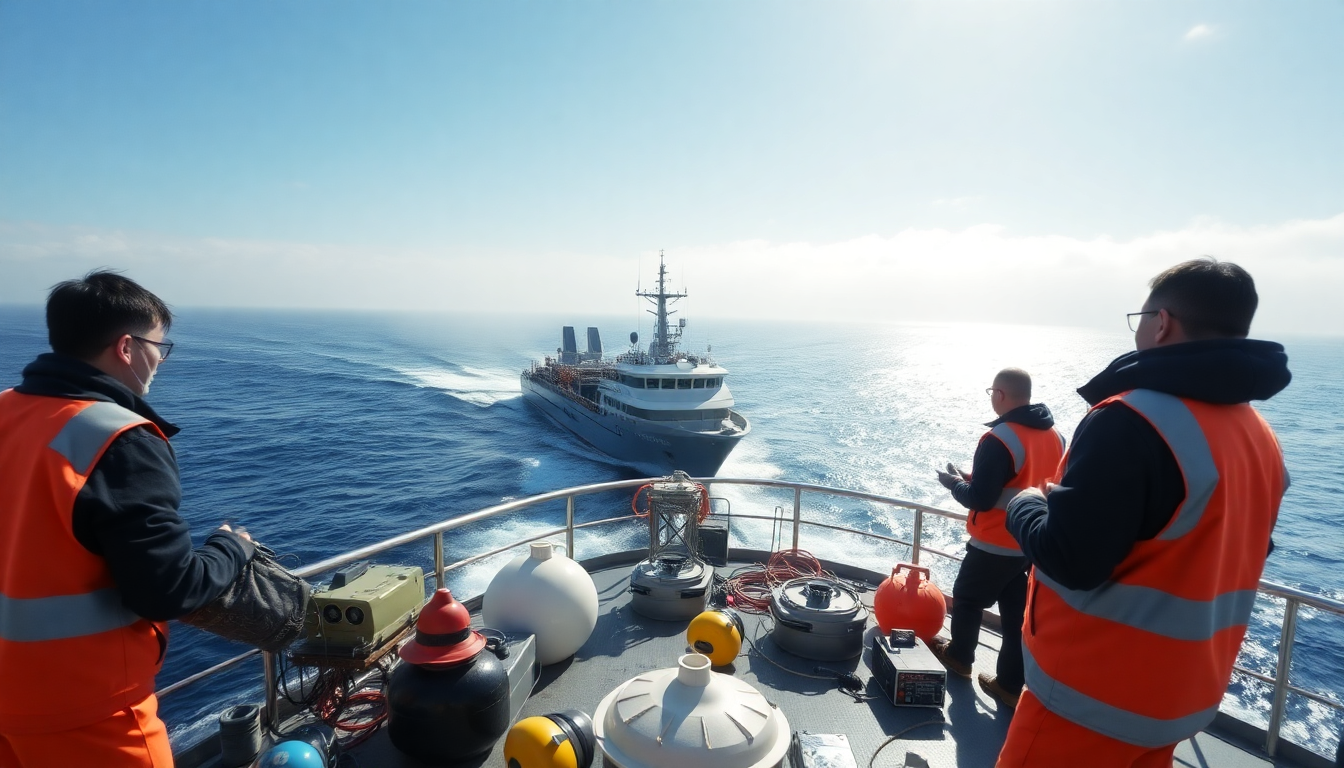Table of Contents
In an exciting development that showcases their growing scientific collaboration, China and Russia have just launched their first joint oceanographic expedition in five years. This mission isn’t just a research trip; it’s a deep dive into understanding how our oceans have evolved and what climate change means for the planet. With environmental challenges looming large, this partnership highlights a commitment to tackling these critical issues through marine science. Isn’t it fascinating how nations can come together to explore our seas?
Overview of the Expedition
This expedition marks the ninth collaborative effort between these two nations and comes after a break due to the pandemic. Aboard the research vessel Akademik M.A. Lavrentyev, a diverse team of 25 scientists from China and Russia set sail from Vladivostok on a 45-day journey. Their primary focus? The complex relationship between climate change and deep-sea ecosystems. Can you imagine the wealth of knowledge they aim to uncover?
According to officials from China’s First Institute of Oceanography (FIO), this mission will investigate environmental changes in the Bering Sea and the northwestern Pacific Ocean. Researchers plan to explore a period known as the Late Quaternary, which covers the last 126,000 years, to see how these environments have reacted to climate shifts over time. Isn’t it eye-opening to think about how long these changes have been occurring?
A key area of study will include the sediment processes that transport materials from land to sea. Understanding this is crucial for grasping the broader ecological impacts of climate change. This collaborative effort not only showcases the scientific prowess of both nations but also their shared dedication to exploring the complexities of marine environments. Who knows what groundbreaking discoveries await?
Goals and Research Focus
The main goal of this expedition is to gather comprehensive data on how climate change affects marine ecosystems. By conducting environmental surveys, the research team hopes to paint a clearer picture of the feedback mechanisms at play within these ecosystems. The insights gained could be vital for shaping future policies and conservation efforts aimed at mitigating climate change. Isn’t it inspiring to think that this research could influence global environmental strategies?
Wang Jun, the acting head of the Chinese consulate general in Vladivostok, emphasizes that this expedition represents a new chapter in bilateral marine research cooperation. It signals a broader commitment to tackling global climate challenges through innovative scientific research. How cool is it that nations are collaborating on such a significant scale?
Additionally, the expedition presents a unique chance for researchers to work together on emerging marine technologies and methodologies. This could lead to groundbreaking discoveries in oceanography and environmental science. What new technologies might they create that could change our understanding of the oceans?
Implications for Global Climate Understanding
The collaborative nature of this expedition is especially significant for global climate initiatives. As countries strive to combat climate change, partnerships like the one between China and Russia highlight the importance of sharing knowledge and resources. The findings from this mission could deepen our understanding of oceanic processes and their impact on global climate systems. Isn’t it intriguing how interconnected our world is?
The focus on deep-sea environments is crucial since these areas often remain less understood yet play a vital role in the Earth’s climate system. By studying how these ecosystems have evolved in response to climate changes, scientists can better predict future shifts and develop strategies to safeguard vulnerable marine habitats. What if this research leads to new ways to protect our oceans?
As the expedition progresses, the international community will be watching closely. The results could steer future research collaborations and climate policies worldwide. Plus, they might inspire similar initiatives, fostering a spirit of cooperation among nations to effectively tackle the global climate crisis. How exciting would it be to see more countries join forces for our planet’s health?


